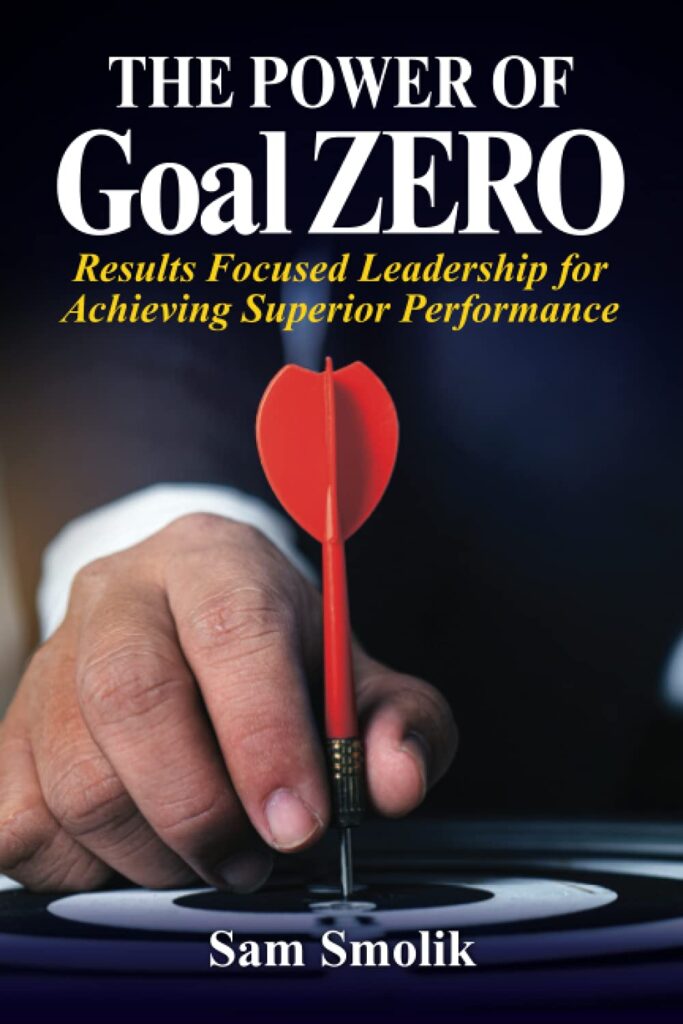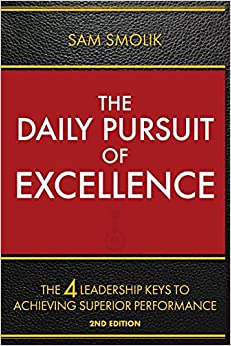Why is Culture So Important?
Feb 13, 2023
Vince Lombardi was a famous American professional football coach, whose team won five National Football League (NFL) Championships in seven years in addition to winning the first two Super Bowls. One of my favorite Lombardi quotes is: “Gentlemen, we are going to relentlessly chase perfection, knowing full well we will not catch it, because nothing is perfect. But we are going to relentlessly chase it because in the process we will catch excellence. I am not remotely interested in just being good.”
This combination of vision and expectation is about as clear and understandable as you will ever hear. I have the same passion for achieving excellence and I hope that you do too.
A common denominator in the most successful organizations is a strong culture of excellence. In my new book, The Daily Pursuit of Excellence, I provide several tips for how to create the right kind of culture. With a strong culture, people clearly know the expectations of the organization, people believe the expectations are the right ones, people do what it takes to meet the expectations, and people know that their behaviors will lead to desirable results.
I retired from LyondellBasell as Senior Vice President, Americas Manufacturing, in 2017. I joined the company in 2009 after it had filed for bankruptcy earlier that year. Our corporate leadership team and each of our global employees worked long hours and endless weekends to bring the company out of bankruptcy and transform it into one of the safest, most reliable, and lowest-cost producers in the industry. We set extremely high expectations for the organization.
The ZERO defect culture we established and the Operational Excellence approach were significant factors in the success of the company. LyondellBasell won the American Chemistry Council Responsible Care® Company of the Year Award in 2014 and again in 2020. This award is presented annually to the best company in the industry for innovative practices and leadership in the areas of environment, health, safety, and security. In 2022, LyondellBasell was named to Fortune Magazine’s list of the world’s most admired companies for the fifth year in a row. That’s an incredible improvement from the bankruptcy days in 2009. Operational Excellence and a culture of excellence provide a sustainable, competitive advantage that LyondellBasell has achieved and continues to enjoy today.
Creating a positive culture was just the right thing to do. We considered culture to be simply a matter of the working environment—how the company treated its people and how the people behaved, acted, and treated each other. We treated each other with respect and dealt head on with issues as they arose.
We wanted a culture where we celebrated successes and people looked forward to coming to work every day. We wanted people to receive appropriate training, have opportunities for advancement in their careers, and perform at their best. We knew that creating the proper culture was important for morale, reducing employee turnover, and recruiting new employees.
I observed a wide variety of work cultures throughout the years, both within the various departments in our companies and in other organizations. I saw some cultures that were tough minded, very strict, and a macho type of environment. On the other extreme, I witnessed cultures that were almost like a country club, with everything focused on softer things, the easy life, and not enough focus on achieving results. Needless to say, there are a wide range of cultures across organizations and also within various departments in the same company.
However, I have come to realize that culture is so much more than just the working environment. I know now that everything we did actually had an impact on the culture of the organization. Culture is not fixed or mysterious. The culture of an organization is alive, and we see it every day. Culture is the way people conduct themselves and is an indicator of how work gets done. A culture of excellence is absolutely critical for success and everything you do has a subtle impact on creating the culture.
What do good and bad cultures look like? I think you know it when you see it—the signs are obvious. In poor cultures, people don’t make the extra effort, attitudes are bad, people wait to be told what to do, housekeeping is poor, there seem to be an endless number of problems, employee turnover is high, and customer complaints are commonplace. This sounds like a recipe for failure.
On the other hand, in organizations with a strong culture, there is an expectation of excellence, every minor detail is managed well, employees are enthusiastic and willing to help each other, loyal customers keep returning, and there is an overall good feeling about the place. I know the kind of culture I like to work in.
There are an endless number of factors that influence culture. We worked hard to make sure people followed the rules, we expected good housekeeping, we expected equipment to be in good working order, and we expected people to be proactive in their work. We dealt expeditiously in addressing valid employee concerns.
We simplified rules and requirements so people could easily adhere to them, and then we enforced the rules. People have a difficult time complying with rules and procedures if they aren’t written in the right manner. We didn’t realize at the time that simplifying documentation in the management system was a major factor in enabling a culture of excellence. It’s critical for people to understand and be supportive of the expectations of the company.
When employees’ behaviors match the company’s expectations, you are on your way to a culture of excellence. If you tolerate poor behavior and poor performance, people are more likely to repeat the poor behavior again. This is often called normalization of deviation. You must deal directly with poor behavior. That doesn’t imply you have to be mean, just create a culture of open and honest feedback and make sure it goes both ways. Culture development begins with the little things. Let me provide a few simple examples to illustrate my point.
- Goals—It’s a good practice to set goals and track progress to assure intended results are achieved in a timely manner. If employees and departments set goals, but then are not held accountable for results, goals start to become meaningless in the organization.
- Housekeeping—If housekeeping is not emphasized and there is trash on the ground, people will adapt to this environment. Many people may live in a home or neighborhood with poor housekeeping, and they may not know what good looks like. We were always adamant about impeccable housekeeping, and our people always adapted to our expectations. Their improved behavior eventually became good habits. Good housekeeping helps to create pride in the organization.
- Signs—If the sign on the door says eye protection required, but people frequently ignore the sign, you’re on your way to a culture of selective compliance. Make sure all signs are important and that the instructions are followed. If the sign is not that important, take the sign down.
- Rules—Some people say rules are made to be broken. I’m definitely not a supporter of that philosophy. I believe in minimizing the number of rules, making sure each one is sensible, and insisting on full compliance. Required protective equipment, safety rules, and procedures must all be followed as required.
Culture is an integral component for achieving Operational Excellence. Culture affects not only how people treat each other, but also how people think and behave every day. The right culture helps people to perform their jobs in the right manner, minimize errors, improve compliance with rules, exceed customers’ expectations, and achieve excellence in performance.
Some leaders in organizations tend to focus on their strategy and blow past the importance of culture. Executives may underestimate how much a strategy’s effectiveness depends on cultural alignment. A strategy without the right culture will fail. Companies with a strong culture tend to produce superior results as compared to those with weaker cultures.
About the author
Sam Smolik is the author of “The Power of Goal ZERO” which he wrote to capture learnings from a career of global and international executive leadership and board of director experience in multi-billion dollar petrochemical, oil, gas and energy manufacturing companies.
He has experience in manufacturing, supply chain, HSE (environment, health, safety, security), sustainable development, ESG, government agencies and non-government (NGO) organizations, M&A, change management, people development, motivation and culture change.
Original Article: https://opexsociety.org/body-of-knowledge/why-is-culture-so-important/
Stay In Touch.
Subscribe to our newsletter and exclusive Leadership content.
We respect your privacy and won’t spam your inbox



